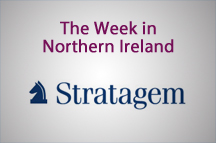 The outcome of the recent Assembly elections has been regaled by some as a “watershed moment” for Nationalism in Northern Ireland, after the historic unionist majority which has been held in all regional parliaments since 1921 was removed.
The outcome of the recent Assembly elections has been regaled by some as a “watershed moment” for Nationalism in Northern Ireland, after the historic unionist majority which has been held in all regional parliaments since 1921 was removed.
Whilst the two Unionist parties still hold more seats than the Nationalist parties, at 40 to 39, the designation of “others” in the Assembly, of which there are 11, means that there is no automatic unionist majority, prompting renewed calls for “unionist unity.”
But what is really happening here? Why the surge in the Nationalist vote?
In an election that saw a significant increase in voter turnout, up by nearly 10 per cent on the 2016 Assembly Election, and even beating the EU Referendum turnout by around 2 percentage points, it is clear that people felt compelled to vote. In a toss-up between apathy and anger, it would seem that the prevailing mood was anger, or perhaps desire for change, within the Nationalist electorate.
This can be distilled down to two things: Brexit, and a reaction to a perceived inequality and lack of respect from some parts of unionism, most recently around the retraction of an Irish language bursary for young people (which was later reversed), arrogance by the failure of First Minister Arlene Foster to step aside in the wake of the RHI scandal, and the subsequent debate around an Irish Language Act.
 Taking Brexit first, this may be the overarching cause of increased voter turnout. Northern Ireland voted modestly to remain part of the EU in a vote which transcended the traditional Unionist/Nationalist split. This, coupled with the absence of any real engagement on the issue between the now defunct Executive and Westminster, may have activated a hitherto dormant nationalism which was content with the status-quo until that was thrown into question through the decision to leave the EU.
Taking Brexit first, this may be the overarching cause of increased voter turnout. Northern Ireland voted modestly to remain part of the EU in a vote which transcended the traditional Unionist/Nationalist split. This, coupled with the absence of any real engagement on the issue between the now defunct Executive and Westminster, may have activated a hitherto dormant nationalism which was content with the status-quo until that was thrown into question through the decision to leave the EU.
Indeed, there is some evidence to support this, albeit anecdotally, in the rise in the number of Irish passport applications which have been received since the referendum in June. As of February this year, there had been a 56 per cent increase in applications for Irish passports in Northern Ireland on the previous year, likely in reaction to Brexit, but which also shows an activation of an awareness of identity.
Whilst many Nationalists were content to exist in a Northern Ireland within the UK, if we interpret previous lower turnouts as evidence of this, the implications of a more isolationist UK outside of the EU has clearly disturbed many, particularly in relation to what it means for future relations within the island of Ireland.
The second reason for an increase in the Nationalist vote would appear to be a reaction to a perceived lack of parity for the Irish identity. There are legitimate arguments on how there are inequalities across the communities, but the recent reaction to comments made by the DUP on the Irish language, and comparisons of Sinn Féin representatives to “crocodiles” may have flicked a switch in the minds of some voters that the way to register this anger was through voting nationalist.
The outworkings of the increase in the Nationalist vote have led to Sinn Féin calling for an “urgent” border poll, buoyed with the confidence of their enhanced mandate. However, in a period of political instability, as talks continue to try to find a way to form a new Executive, many may feel this political opportunism is unhelpful.
In any event, the electorate has spoken, and a dormant nationalism has awoken; whether this is a one-off reaction, or a turn in the road of the “new normal” won’t be clear until the next election – which could be sooner rather than later if progress is not made in the current talks.












